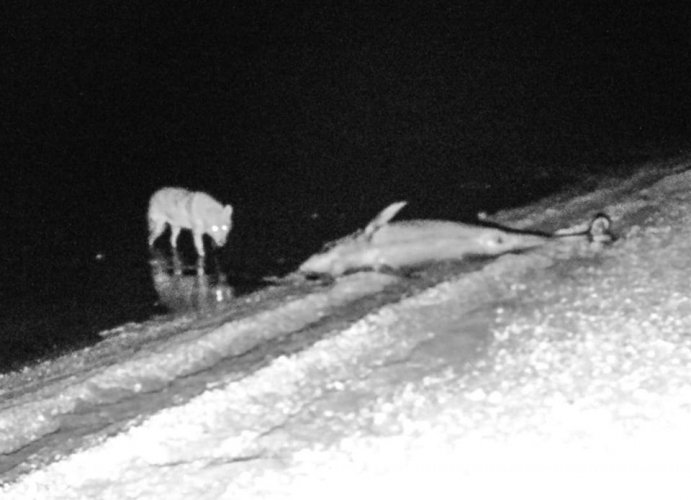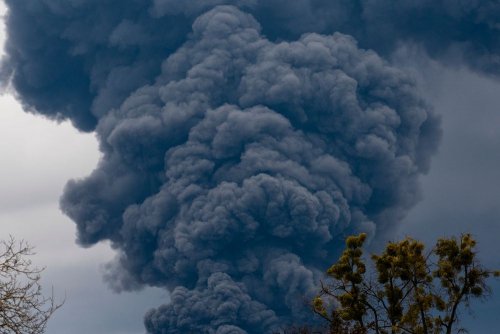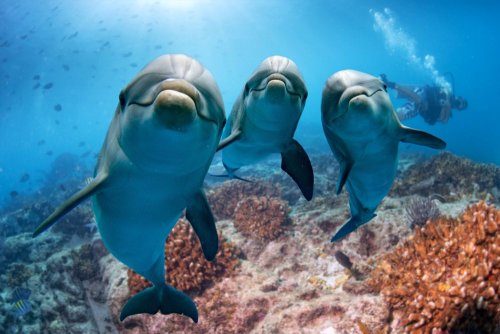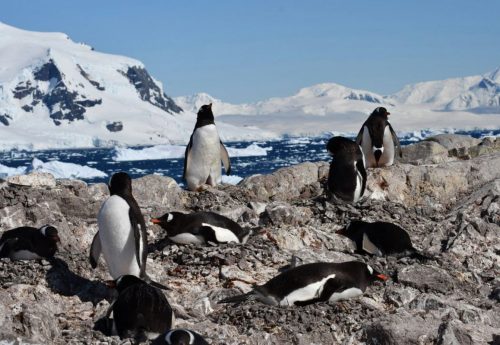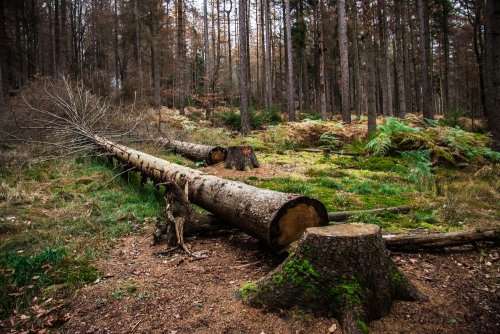In Odesa, two more Azov dolphins, who became victims of the war, were washed up on the coast of the Tuzlivski Lymani National Nature Park.
One of them was again taken to the depths of the sea by the current, the other by jackals, Ivan Rusev, ecologist of the Tuzlovsky lymany NPP, writes on Facebook.
He explained , that the combat actions of the aggressor in the Black Sea are taking place with the use of surface and submarine boats, which use sonar devices (sonars). They create powerful sounds that negatively affect the health of animals. Dolphins fall into the radiation zone of ships' navigation devices, which disables their navigation and echolocation organs and receive a powerful acoustic injury.
Dolphins also suffer from systematic powerful explosions during bombings.
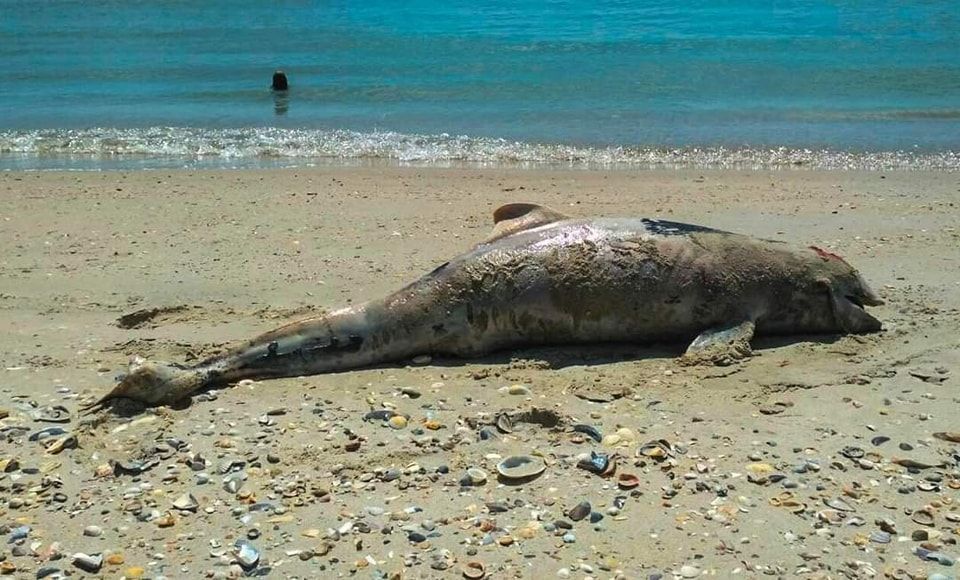
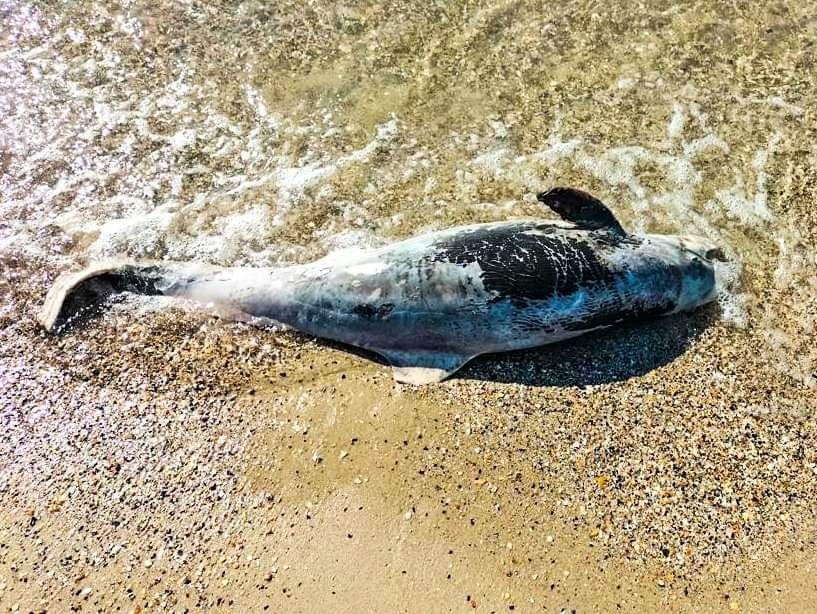
When the organs of navigation and hearing are damaged, dolphins cannot use echolocation, that is, they become virtually blind and lose acoustic control over the environment. Blind dolphins are in stress and panic, they cannot navigate in space. As a result, they hit obstacles, including mines, and crash against rocks. In addition, such paralyzed dolphins cannot catch fish and quickly get exhausted.
Weakened from the impact of the sonar, the dolphins, blind, in a stressful state, suddenly lose their immunity and become the object of autonomous infection by infectious agents.
Rusev suggested that from sonar waves, bombings and the decibel level of the noise of war, gas embolism or decompression sickness occurs in dolphins when they suddenly rise to the surface of the sea. This is a disease that occurs due to a rapid decrease in environmental pressure, as a result of which nitrogen dissolved in the blood and tissues of the body begins to be released in the form of bubbles into the blood. There is foaming of the blood and destruction of the walls of cells and blood vessels, which block blood flow. In a severe form, gas embolism – decompression sickness can lead to paralysis or death of an animal thrown out by the sea.
Employees of the national park set a camera trap on the coast near the dead dolphin. It turned out that the jackals had taken the dolphin and dragged a part of the spine to a considerable distance.
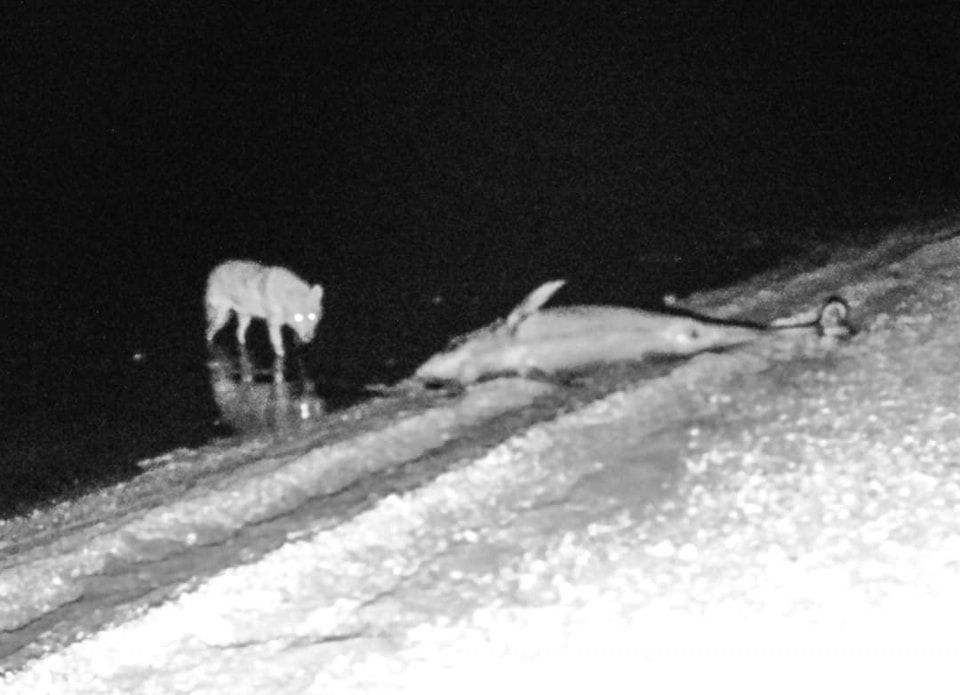
"Thus, having appeared on the coast, a dead dolphin can disappear the next day, although there are exceptions when parts of corpses can lie for a long time. And therefore, it should be understood that the actual data on dead Black Sea dolphins is greatly underestimated, since it is practically impossible to find and include in the total number of all animals thrown into the sea," Rusev noted.
In addition, only up to 3-5% of the sea coast is available for monitoring due to the war, and the sea washes up no more than 5% of all dead dolphins. The remaining 95% simply goes to the bottom of the sea and cannot be registered and studied.
Earier EcoPolitic wrote, that in the national park Tuzlivski lymani, they found again 4 dead dolphins.
As EcoPolitic previously reported, no less than three thousand dolphins in Chorny the sea became victims of the russian invasion of Ukraine.

